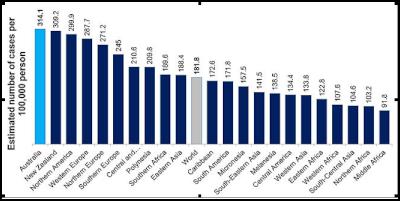Are New Zealand & Australia ready for new cancer therapies?
31 July 2013
Are New Zealand & Australia ready for new cancer therapies?
Medicines New Zealand welcomes the report ‘Access to Cancer Medicines in Australia’, and calls for a similar stakeholder discussion to occur in New Zealand.
The report generated by Deloitte Access Economics, was presented at todays’ Medical Oncology Group Australia (MOGA) Annual Scientific Meeting in Melbourne. It highlights the significant burden of disease that cancer presents, and highlights disparities around investment in the Australian health system. For example, cancer receiving only 13% of health funding despite it representing 20% of disease burden. The report also highlights that significant advances are being made in research and development of new cancer medicines, but obtaining timely, equitable and fair access to new cancer treatments is going to be a challenge.
“This new report is valuable and many of the key conclusions can equally apply to New Zealand”, said Kevin Sheehy, General Manager of Medicines New Zealand.
Cancer is a major health issue for New Zealanders, and one in three New Zealanders will have some experience of cancer, either personally or through a relative or friend. Like Australia, cancer is New Zealand’s leading cause of death (29 percent) and a major cause of hospitalisation.
Reducing the burden of cancer in the New Zealand community is also one of the Government’s priority areas as our rate of cancer is likely to grow with the ageing population.
International comparison of estimated incidence of all cancers, 2008

Click for big version.
Source: Ferlay et al 2010, cited in AIHW & AACR 2012
“The New Zealand Ministry of Health’s National Cancer Programme has the goal of better, sooner and more convenient cancer care, and this is to be commended. Particularly as it has a specific goal for timely access to chemotherapy. However it does not address the key issue of whether NZ is getting timely to the best treatments that are now available.” says Sheehy.
Unfortunately, the lack of medicines budget available to PHARMAC has not allowed NZ to remain up to date with the latest advances in medicine while our total health spend remains in the top 10 OECD countries. Cancer therapies are no exception.
Breast cancer patient advocacy group, the Breast Cancer Aotearoa Coalition, agrees that more needs to be done to ensure New Zealanders have ready access to new cancer medicines.
BCAC chair, Libby Burgess, says the Deloitte’s report notes many Australian stakeholders are concerned that new cancer medicines are introduced much later there than they are in the US and Europe.
“The situation is far worse in New Zealand, where on average we see new medicines introduced some three-and-a-half years after Australia. This means New Zealanders are waiting far too long for treatments which could save lives,” Ms Burgess says.
The report questions the way medicines subsidies are evaluated and assessed in Australia and Ms Burgess says a similar evaluation needs to be undertaken in New Zealand.
Some stakeholders noted that the Australian reimbursement system, first implemented 20 years ago for determining the value for money of medicines, has not adapted sufficiently to the changes in the development of medicines and diagnostic technologies, particularly in regard to targeted cancer medicines. Many components of the current process are not fit for purpose to meet the emerging issues associated with cancer medicines.
The Deloitte’s report recommends “procedural improvements by streamlining the complex and lengthy regulatory and reimbursement processes” in Australia.
Ms Burgess says similar ‘procedural improvements’ are needed in New Zealand to ensure that new medicines are evaluated quickly and subsidised in a timely manner to truly benefit the health of country. BCAC is hopeful that PHARMAC’s current consultation on its Operating Policies and Procedures will lead to faster more transparent decisions and access to a wider range of effective medicines.
ENDS


 Te Whatu Ora Health NZ: Health Warning – Unsafe Recreational Water Quality At Roto Kohatu Reserve At Lake Rua
Te Whatu Ora Health NZ: Health Warning – Unsafe Recreational Water Quality At Roto Kohatu Reserve At Lake Rua Shearing Sports NZ: Shearing Them Around - 11 Shearing Records In 2024
Shearing Sports NZ: Shearing Them Around - 11 Shearing Records In 2024 The New Zealand Retro: Special End Of Year Retro Chart Show On Independent Radio Stations
The New Zealand Retro: Special End Of Year Retro Chart Show On Independent Radio Stations ASB Polyfest: Polyfest’s 50th Celebrations On Track Despite Funding Cuts
ASB Polyfest: Polyfest’s 50th Celebrations On Track Despite Funding Cuts Air New Zealand: Raw Thrills - Air New Zealand's Most Popular Inflight Entertainment Revealed
Air New Zealand: Raw Thrills - Air New Zealand's Most Popular Inflight Entertainment Revealed Hustle Management: Celebrating 50 Years Of Music, Now And Then, With Mark Williams
Hustle Management: Celebrating 50 Years Of Music, Now And Then, With Mark Williams